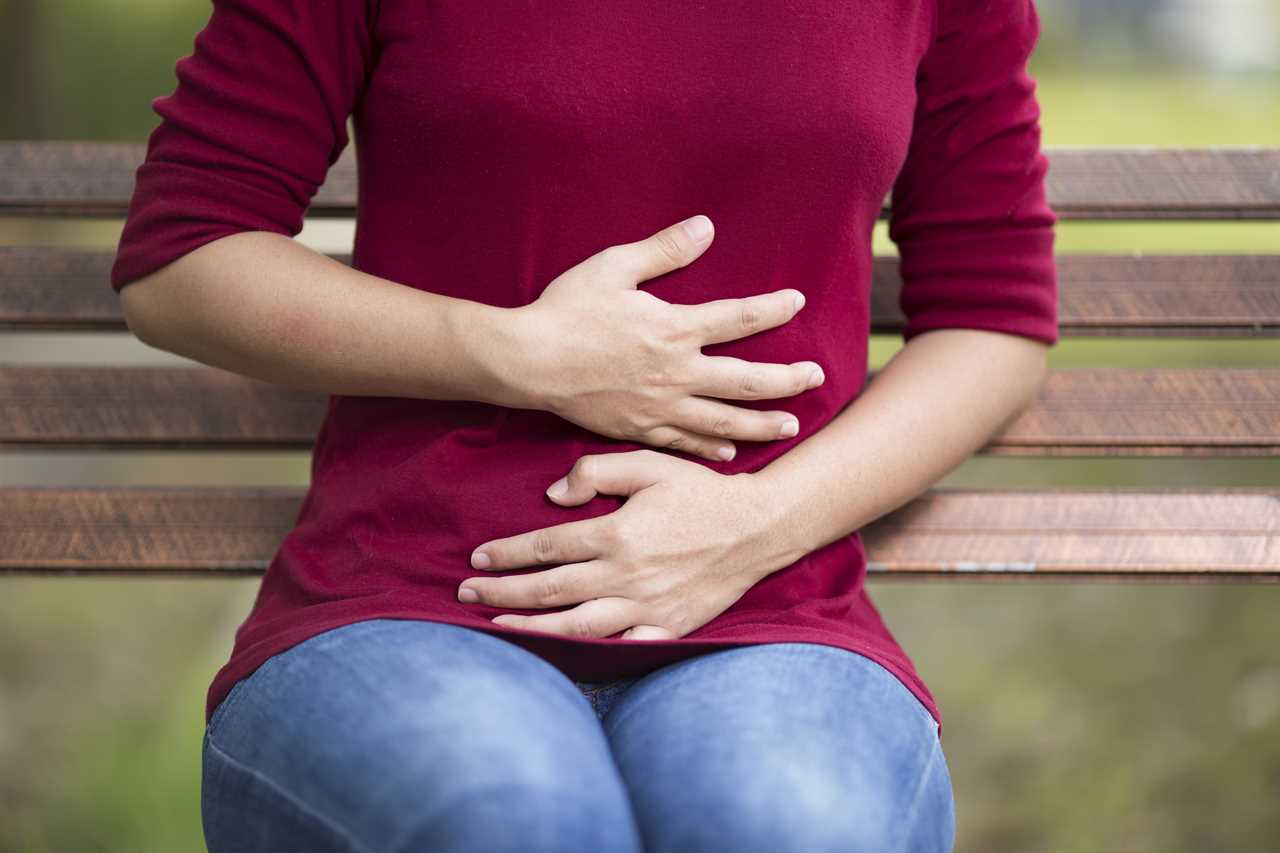IF you’ve been suffering with a poorly tummy recently then you might have just put it down to a bit of dodgy food.
In the last week there’s a been a huge increase in Brits searching for why they are experiencing stomach issue – and if it’s down to coronavirus.

Omicron is currently the dominant strain of Covid-19 in the UK and most people say they experience cold-like symptoms such as a sore throat or runny nose.
Studies have also shown that Omicron is a milder strain than other variants that came before it, such as Alpha and Delta.
But while most people are having cold-like symptoms, some people are also struggling with a sore stomach.
In the last seven days, searches for ‘stomach ache Covid’ have increased in the UK by over 100 per cent, while searches for ‘is a sore stomach a sign of Covid’, have also gone up by 70 per cent, data from Google Trends shows.
These searches are backed by observations from experts at the ZOE Symptom Tracker app, who say that of recent, there has been a rise in people reporting gastrointestinal symptoms through the app.
The experts state that since the start of the pandemic people have been logging symptoms associated with stomach troubles through the app.
These include diarrhoea, stomach pains, feeling sick, losing your appetite or skipping meals.
The experts said that they had spotted a ‘sharp increase’ in people reporting these symptoms, and explained that this follows a similar pattern to symptoms being experienced in the winter wave of the bug in 2021.

Follow our Covid live blog for all the latest updates
Doctors treating Omicron patients have also observed people suffering with stomach issues.
US medic, Dr Bill Admire said most people who caught the Delta variant would suffer some form of respiratory issue – with upper respiratory issues being the key factor.
“But with Omicron, patients with gastrointestinal problems are flaring up and having more symptoms”, he said.
Studies have shown that people who have Covid-19 can sometimes experience gastrointestinal symptoms.
Published in the Journal of Microbiology, Immunology and Infection, experts found that that nausea and vomiting were two of the most common symptoms that sat beside other key Covid symptoms such as a sore throat or loss of taste and smell.
The study suggests that issues like diarrhoea, nausea and vomiting could be triggered by the Covid infection.
The reason people are sick, they suggest, is due to the body’s inflammatory response to the virus infection.
The experts at ZOE said that these symptoms have been common with all variants, and therefore they wanted to discover whether or not there was a rise in these symptoms, specifically with Omicron.
They states: “When we looked at PCR test results reported in the app, we found that while a significant proportion of people reporting gastrointestinal symptoms tested positive, we also saw an increase in the proportion of people with these symptoms who tested negative.
“There was a similar pattern with lateral flow test results.
“This suggests that even though Omicron can be associated with gastrointestinal symptoms, the rates are not higher than what we saw in Delta, and one or more other types of tummy bug are likely to be going around in the population at the current time.
“For example, norovirus is very common at this time of year – hence its nickname, the Winter Vomiting Bug – although we currently have no way of testing whether people reporting gastrointestinal symptoms in the app are infected with it.”
DON’T IGNORE IT
If you are struggling with stomach issues, then it’s important you don’t ignore them, as it could be down to a nasty bug such as the norovirus.
It was last week reported that outbreaks of the virus have been seen in educational settings and in care homes.
But if you’ve done a Covid test to make sure it’s not Omicron and you’ve tested negative and your symptoms still persist there are other signs to look out for which could mean you need urgent medical attention.
The NHS says these are the 10 signs you should never ignore when it comes to stomach issues:
- your stomach ache came on suddenly or is severe
- hurts to touch your stomach
- vomiting blood and vomit looks like ground coffee
- poo is bloody or black
- can’t pee
- can’t poo or fart
- you’re struggling to breathe
- you experience chest pain
- you’re diabetic and vomiting
- the person you’re with has collapsed
It’s important that if you experience these symptoms that you seek emergency care right away by either dialling 999 or going to A&E.
While these are the symptoms you will experience if you need emergency care, most people with stomach issues, such as norovirus or gastrointestinal issues will likely experience milder symptoms.
These will usually include a mild fever, vomiting which can be projectile, feeling sick and sudden watery diarrhoea.
You might also experience a headache and aching arms and legs.
For most stomach problems you can get over-the-counter remedies at your local pharmacy.
It’s important that you keep up good hand hygiene, especially if you’re unwell as this will help avoid spreading the bug to other people.






